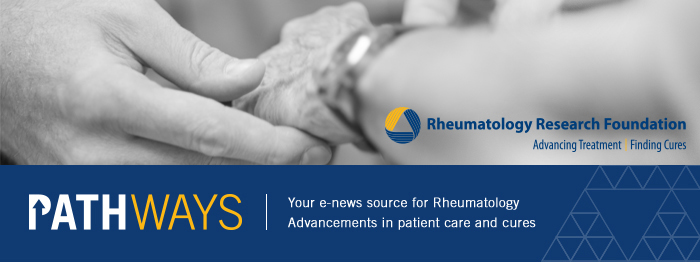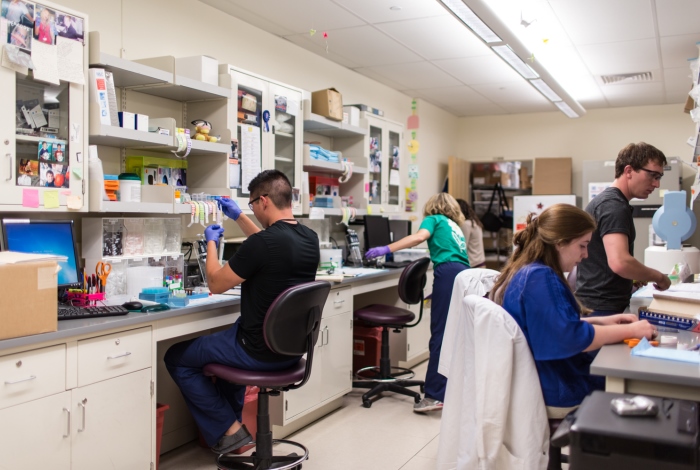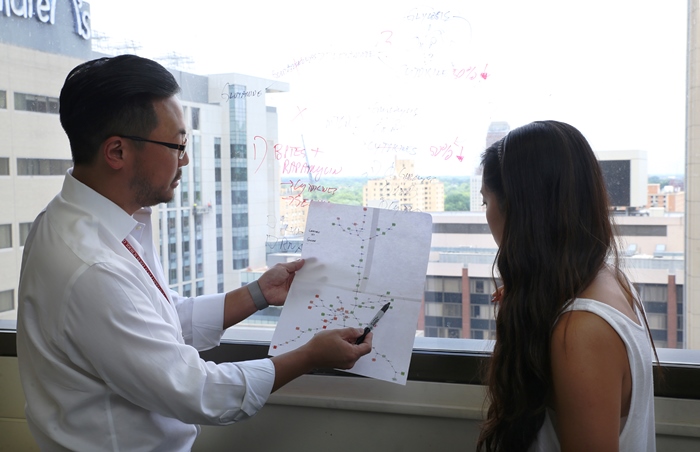Pathways

Volume 6 • Issue 7 • July 2017 • Rheumatology Research Foundation

Foundation Awards 63 Education, Training and Research Awards
On July 3, the Rheumatology Research Foundation announced the names of 63 rheumatology trainees, educators, researchers and health professionals who will receive Foundation funded awards. In support of the Foundation’s mission to improve the health of people with rheumatic diseases, the awards help to recruit and train the next generation of rheumatology professionals and advance research that leads to new treatments and cures.
The award recipients, who range from medical students and residents to experienced investigators and rheumatologists, are located in 32 cities across the United States. Their applications were submitted last year and closely examined by experts in different areas of the field through an extensive peer review process.
Of the awardees, 22 will receive funds to conduct research into the cause, progression, and treatment of rheumatic diseases. Projects cover a variety of rheumatic diseases including gout, inflammatory arthritis, juvenile idiopathic arthritis, osteoarthritis, psoriatic arthritis, rheumatoid arthritis, scleroderma, Sjögren’s syndrome, spondyloarthritis, systemic lupus erythematosus and systemic sclerosis.
In addition to funding innovative research, Foundation awards help to address the growing shortage of rheumatology professionals. Twenty-four future rheumatologists will receive fellowship training opportunities funded by the Foundation. An additional 13 students, residents, and health professionals will receive Foundation-funded preceptorships, or one-on-one real world learning experiences with an established mentor in the field. Faye Hant, DO, MSCR, is the director of the rheumatology training program at the Medical University of South Carolina, as well as a former mentor for Foundation preceptees. She explains how the program helps encourage more future health professionals to choose a career in rheumatology, ““Students have very little exposure to rheumatology in medical school. Preceptorships allow them to actually see what rheumatologists do every day and get a taste for the types of patients we serve. By fostering that interest in rheumatology, we are increasing the workforce.”
In total, the Foundation is funding more than $9.97 million in awards for fiscal year 2018 (July 1, 2017–June 30, 2018). Additional awardees and scholarship winners will be announced later this year. The Foundation is able to provide this critical funding, thanks to generous donations from patients and families, rheumatologists, rheumatology health professionals and corporate supporters. Among the Foundation’s biggest corporate donors are members of the Corporate Roundtable (CRT), a dynamic partnership between the Foundation and industry leaders.
Learn more about the exciting work being done by the latest recipients of Foundation funding.
Meet people who are living with rheumatic diseases, and learn what the Foundation is doing to help. In this #RheumLife series, we will share patients' perspectives of life with rheumatic disease and feature the Foundation-funded researchers who are working to advance treatments and find cures. Visit the improving patient care page to to read more stories, or share your experience with us on Facebook or Twitter.
#RheumLife: Rheumatoid Arthritis and Genetics

Sometimes multiple family members are diagnosed with an autoimmune disease, but they aren't always the same disease. Evidence suggests that genetics play a role in the development of rheumatic diseases, but researchers are working to learn more. Understanding which genes are linked to rheumatic disease and what role they play could lead to the discovery of new treatments and prevention.
|
 Elizabeth Edwards Elizabeth Edwards
|
Patient Perspective
“Rheumatoid arthritis runs in my family. It is painful to think that my children might also have this disease one day," explains Elizabeth Edwards, mom of two from Lexington, Kentucky.
|
 Alice Chan, MD, PhD Alice Chan, MD, PhD
|
Efforts to Help
Alice Chan, MD, PhD, assistant professor at University of California, San Francisco, is studying a novel candidate gene, known as Mosaic, which was identified as a culprit for causing early and severe multiorgan autoimmunity in a unique breed of dog. The Mosaic gene is also found in humans and has been linked to early onset of Addison’s disease, arthritis, autoimmune cytopenias, hepatitis and uveitis. The study will shed light on the role of the genetics in mediating these issues, which may lead to new therapeutic targets in treating autoimmune diseases for those like Elizabeth with a family history of the disease.